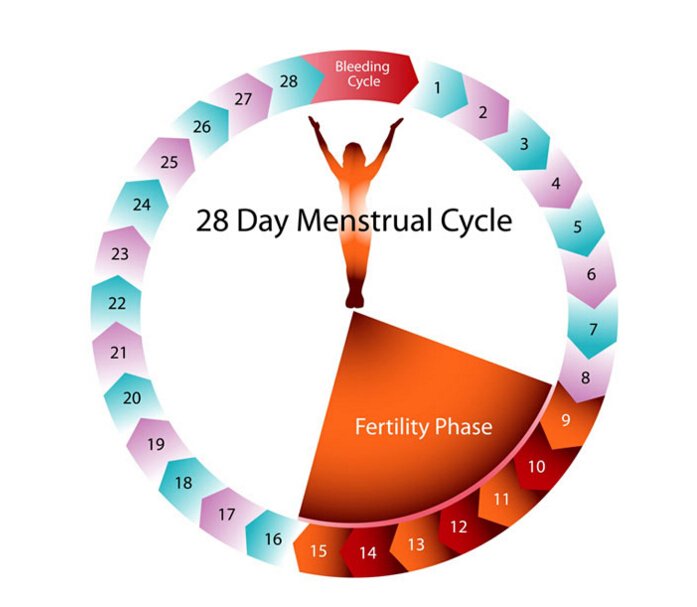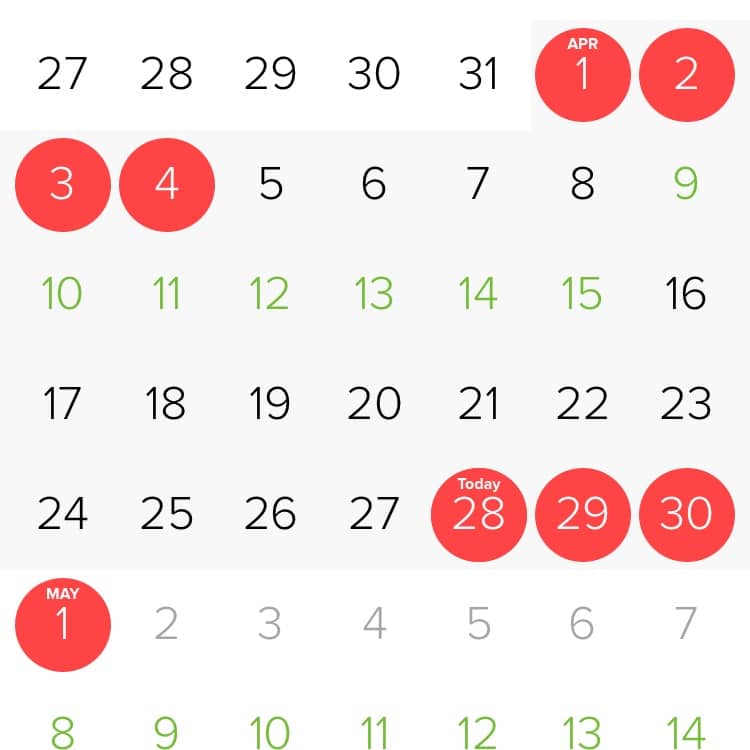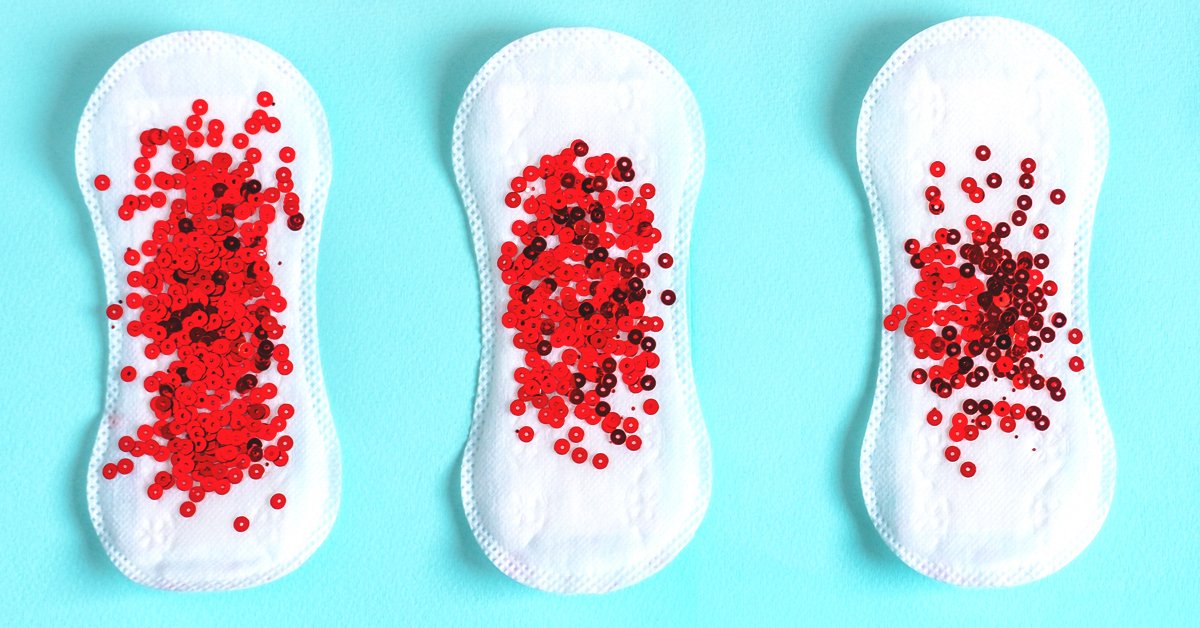You’re On Or You Forgot To Take Your Birth Control
Duh, right? Missing birth control pills or forgetting your Depo-Provera shot will always cause irregular bleeding, says Dr. Richardson. Anytime you fail to take a birth control method correctly, you will bleed because you have an abrupt withdrawal of hormones. This kind of bleeding, though, is not an emergency.”
You can also experience irregular bleeding if you’re just starting to use birth control. “Birth control like the arm implant and IUD can be linked to intermenstrual bleeding or spotting, a.k.a. unscheduled bleeding or random bleeding that isn’t a true period. This is especially true the first few months after having either the implant or IUD placed,” says Jennifer Lincoln, MD, an ob-gyn based in Portland, Oregon, and the author of Let’s Talk About Down There. “In addition, this kind of bleeding can continue with the arm implant no matter how long you’ve had it, while for many it stops over time with the IUD.”
When Should I See My Doctor
Bleeding between periods is common in fact, it happens to most women at some point during their lives. However, it is not considered normal to bleed frequently in one month, or to bleed between your periods for several months. Bleeding after having sex should always be discussed with your doctor. There are many possible causes for bleeding between periods and a lot of them arent serious, but you should speak to your doctor if you bleed between periods as it can occasionally signal something serious.
How Does A Doctor Determine The Causes Of Period Twice A Month
From head to toe, important regions that your doctor evaluates for determining the causes are:
A. Hypothalamus and Pituitary in the brain. These determine the levels of hormones to be secreted by the ovaries which then act upon the uterus. These hormonal levels are affected by genetics, stress, medication, and the presence of any tumour in these organs.
B. Thyroid gland is responsible for metabolism and changes in this can affect cycle regularity.
C. Ovaries Presence of any disease in the ovaries could cause irregular periods. The causes could be endometriosis, presence of ovarian cysts, polycystic ovaries etc.
D. Uterus A fibroid, adenomyosis, or any other abnormality in the structure can lead to bleeding that is more than normal.
E. Adrenals These too can lead to changes in cycle duration if they have a tumour or growth causing variation in hormonal levels.
F. Blood Bleeding disorders usually run in families and if someone has a tendency to bleed more than normal, they would be evaluated for the same.
G. Cancers Cancer of the uterus, cervix and ovary can result in more than regular cycles and this would be ruled out too.
H. Medication During the course of treatment with some particular medication too, one could have irregular cycles as a side effect.
Dr. Sangeetha Sivaraman spoke to our community about various topics related to periods and sex during our Period Coach Week. Watch her interesting talks here.
You May Like: How To Stop Diarrhea On Period
What Is The Menstrual Cycle
Normally, once every 28 days, the uterus prepares itself for implanting the fertilized egg. The uterus does this by growing a new lining- the endometrium. If the sperm fails to fertilize an egg, pregnancy never happens. In that case, the uterus lining sheds off along with the blood from the newly formed blood vessels. This is often called the menstrual flow or period. The menstrual cycle refers to the first day of one period to the first day of the next menstrual period. It varies anywhere from 24 to 35 days in different women.
Can You Ovulate During Your Period

Menstruation or a period is the bleeding that occurs when the endometrium is shed 12 to 16 days after ovulation. With this definition of a period, you cannot ovulate while on your period.
However, some women experience mid-cycle or ovulatory bleeding and may mistake it for a period. This can happen to women with very irregular cycles coming once every 3 months or 2-3 times in one month. Mid-cycle bleeding can occur in women with regular cycles as well. They may experience what appears to be a period, but, in reality, this is most likely ovulatory bleeding. Ovulation can occur when you experience mid-cycle or ovulatory bleeding.
Keep in mind that while you cannot technically ovulate while on a period because sperm can live in the body for 3-5 days after sex, pregnancy could occur from intercourse that takes place during a period.
Also Check: How To Stop Period Without Birth Control
Also Check: Period Tracker To Share With Partner
When To See A Gp
You dont need to get medical advice if you have always had slightly irregular periods or youre still going through puberty.
But see a GP if:
- your periods suddenly become irregular and youre under 45
- you have periods more often than every 21 days or less often than every 35 days
- your periods last longer than 7 days
- theres a big difference between your shortest and longest menstrual cycle
- you have irregular periods and youre struggling to get pregnant
There might not be anything wrong, but its a good idea to get checked out to see what the cause might be.
You might be referred to a specialist called a gynaecologist if you need any tests or treatment.
Dont Miss: First Signs Of Pregnancy Before Missed Period
When To Get A Professional Opinion
âIf youre having short cycles for more than two or three cycles, it will never hurt to bring it up to your OBGYN,â Karchmer says.
Kate Smitheducation manager of Hey Girls, a community interest company aiming to end period poverty in the UKalways recommends seeking answers from the pros.
â could be as normal as an infection but could also be the early signs of endometriosis, fibroids or something worse,â Smith says. âIf in doubt, seek medical advice from your doctor for reassurance.
A medical expert will need to determine the reason for your increased periods before providing a solution. This means that itâs always important to reach out to the pros whenever you have concerns your period is not only an indication of your fertility but also your overall health and wellbeing and should not be ignored.
Don’t Miss: Blood When I Wipe After Urinating But No Period
Age And Frequent Periods
Period frequency, how many days it lasts, and how much you bleed are all influenced by your bodys hormone levels. These levels fluctuate throughout your life.
During your teen years, cycles are often irregular because of all the hormone changes that are taking place.
Your cycles may normalize in your 20s or 30s only to once again become irregular in your 40s and early 50s as you make the transition to menopause.
| Hormonal Changes |
|---|
Why Am I Bleeding 2 Weeks After My Last Period
In the case of puberty and just before menopause, women might experience vaginal bleeding more than once each month during the menstrual period. Apart from this natural reason, diseases such as PCOD , uterine fibroids, uterine polyps, vaginal infections, or uterine infections can cause mistimed and irregular periods.
Sometimes missing your usual birth control pills can also cause intermittent bleeding between two period cycles. A period varies between different women. It can be different at various stages of their life. Generally, women experience a menstrual period once a month. This cycle happens every 21 to 35 days.
You May Like: What’s Best For Period Cramps
You’re Seriously Stressed Out
High levels of stress can cause either more frequent periods or completely missed ones, says Dr. Masterson, because the hormones that trigger your ovaries to ovulate every month originate in the brain .
Related Story
Basically, when youre swamped at work or worrying a lot , those hormones can misfire and affect your cycle in negative ways.
Reasons For Missed Periods Or Absence Of Menstruation
Some peoples periods arrive each month like clockwork. For others, periods are unpredictable and may come as a surprise. Sometimes, they dont happen at all! This doesnt necessarily mean youre pregnant.
Missed or late periods may happen for a variety of reasons apart from pregnancy. Common causes of missed or irregular periods range from hormonal imbalances to medical issues. Lets discuss the main reasons for a missed period and when its time to contact a health care provider.
Dont Miss: Abdominal Pain After Period Could I Be Pregnant
Read Also: Period Like Cramps During Early Pregnancy
Use Of Hormonal Contraception
Bleeding between periods often happens when you start to take hormonal contraceptives. This is because your hormone levels drop. It is also called breakthrough bleeding, and usually happens about 2 weeks after your last period.
Breakthrough bleeding should stop after 1 or 2 months. Your periods will usually become more regular within 6 months. Bleeding between periods can also happen if you forget to take one of your oral contraceptive pills.
However, if bleeding occurs at other points during your menstrual cycle, you should consult your doctor in order to rule out the possibility of other conditions.
Other hormonal contraceptives such as hormone containing intra-uterine devices contraceptive injections or rods can also cause breakthrough bleeding or irregular periods. Sometimes this may be because the device isnt inserted properly, especially if its also painful. Check with your doctor as they may be able to give you medicine to control the bleeding and rule out other causes, like an infection.
When Its Not Normal

Occasionally, brown, bloody discharge accompanied by other symptoms can indicate a problem.
Tell your doctor right away if youre pregnant and experiencing brown-colored bleeding. This can mean that something is wrong with your pregnancy. You may need immediate medical care.
- periods that last longer than 7 days
- less than 21 days between periods or more than 35 days between periods
- not having a period for more than three to six months
- bleeding between periods
- multiple cysts on the ovaries
The cause of PCOS isnt known. It can be passed on genetically. If your brown discharge happens along with these other symptoms, ask your doctor to test you for it. Untreated PCOS can make you more susceptible to conditions such as type 2 diabetes, infertility, and cardiovascular disease. Getting tested and treated early on can help prevent these issues from developing.
Some causes of brown discharge, including menopause, arent a problem. However, discharge can be a symptom of a yeast infection or a sexually transmitted infection such as gonorrhea or chlamydia, that requires treatment. Brown discharge can also be a sign of inflammatory conditions such as cervicitis or vaginitis. In rare cases, brown discharge can indicate cervical cancer. Talk to your doctor if you think you might have any of these issues. If you havent already done so, you may consider getting routine cervical cancer screenings or the human papillomavirus virus vaccine.
Also Check: How To Make Period Pain Go Away
Should You Get Tested For Perimenopause
The short answer: No.
The blood tests that measure your ovarian reserve are rarely accurate during perimenopause. FSH and estrogen change by the day and throughout the day so they are generally not helpful.
We do consider testing these hormones if you experience perimenopausal symptoms under the age of 45. We generally will also check other pituitary hormones, like TSH and prolactin, if you are experiencing these symptoms prematurely.
Keeping a menstrual diary is generally the best test you can do. This will give you and your OBGYN insight into what your body is doing and for how long.
Any time you experience abnormal uterine bleeding , checking in with your doctor is a good idea to make sure it is normal and that no other work-up is needed.
You May Like: How To Slow Down A Period From Coming
You Have Uterine Polyps Or Fibroids
Uterine issues like polyps or fibroidsbenign lesions or tumors that can grow in the uterusare very common and may be related to hormonal issues. Uterine polyps can cause bleeding in between periods, says Dr. Dweck, especially if they are touched, like during sex, and fibroids can cause pain, back pain, abdominal bloating, anemia, pain with intercourse, and spontaneous bleeding because theyre not associated with the menstrual cycle, explains Dr. Richardson.
While fibroids can affect women of any age or race, Black women are about three times more likely to develop them compared to white women, and their symptoms tend to emerge at an earlier age with greater severity. Its unclear why exactly Black women are disproportionately impacted by fibroids, but some studies suggest that greater exposure to racial discrimination or genetics could play a role.
As the Black Womens Health Imperative notes, heavy, painful periods may seem like a fact of life since theyre so commonand many women wait years to seek treatment for fibroidsbut you dont have to needlessly suffer.
What to do about it
Head to your ob-gyn for an ultrasound, a uterine biopsy, or a hysteroscopy . Hormonal medications such as progestins and gonadotropin-releasing hormone agonists may lessen symptoms of polyps and shrink uterine fibroids.
Don’t Miss: Where Do You Feel Period Cramps
Whats An Anovulatory Cycle
As its name suggests, an anovulatory cycle occurs when a women skips ovulation. During ovulation, the ovary releases an egg, or oocyte.
Its not uncommon for a woman in her prime conception years to experience an anovulatory cycle occasionally. In fact, you may have experienced one and not even noticed. Thats because when a woman experiences anovulation, she may still seem to menstruate normally.
In a normal cycle, the production of progesterone is stimulated by the release of an egg. Its this hormone that helps a womans body maintain regular periods. But during an anovulatory cycle, an insufficient level of progesterone can lead to heavy bleeding. A woman may mistake this bleeding for a real period.
This kind of bleeding may also be caused by a buildup in the lining of the uterus, known as the endometrium, which can no longer sustain itself. It can be caused by a drop in estrogen as well.
Potential Complications Due To Extra Bleeding
While a naturally shorter menstrual cycle shouldnt pose any danger to ones health, some complications could happen, especially if having more frequent periods is not typical for you.
Anemia is the most prominent issue that could arise from extra bleeding. Its characterized by the lack of iron in the blood. The common symptoms of anemia include weakness and fatigue, headaches and dizziness, as well as irregular heartbeat and shortness of breath. Just having two periods in one month doesnt necessarily warrant anemia this condition can happen after several months of experiencing very heavy menstrual flow.
In case getting a period twice a month is not something youre used to, you might find it challenging to keep track of your ovulation. If you dont plan to conceive any time soon, make sure to use some kind of contraceptive method during sexual intercourse.
On the other hand, if you wish to get pregnant but have issues with very heavy menstrual bleeding, definitely discuss this with your doctor. This issue can make it more challenging to conceive.
Don’t Miss: Can Stress Cause A Missed Period
Is It Normal To Miss A Period
There are several times in a persons life when irregular periods are expected: when a person first starts having periods , during breastfeeding, and at the beginning of perimenopause . On average, most people get their periods every 28 days. But a healthy persons menstrual cycle can last from 21 to 35 days. Apart from puberty, menopause, and pregnancy, a missed period may indicate a health issue.
Period Twice In One Month
A womans body goes through a series of changes every month in preparation for a possible pregnancy. This process is called the menstrual cycle. About once every month, the uterus prepares itself for a fertilized egg by growing a new lining also known as endometrium. Hormonal changes prepare the uterus for pregnancy simultaneously. In the event that there is no fertilized egg to initiate pregnancy, the uterus lining sheds off. This is termed as the menstrual period that occurs in women from teenage to menopause at about 50 years of age. However, there are times when women can get their period twice in one month. Read on to find out more about this phenomenon.
You May Like: How Late Can Your Period Be Without Being Pregnant
My Yearly Period Tracker
- My Yearly Period Tracker is a simple and convenient way to track your period throughout the year.
- Refer to the Key at the bottom to learn how to fill in the box with the appropriate letter. Place a T in the box for the hormone pill taken and place an R for reminder pills.
- Be sure to indicate if youve taken a pill during your period by putting a B/T or B/R in the box.
- Remember to bring My Yearly Period Tracker with you to your medical appointments.
- Talk to your HCP about whether you should use the monthly and/or yearly tracker to track your period.
/10menstruating For The Second Time In A Month

Lets admit it – no matter how much you hate your periods, even a slight change in the cycle can make you anxious. Heavy flow, light flow, preponed or postponed menstrual cycle, they all are issues that are reported quite frequently. But menstruating twice a month is something that shouldnt be ignored.
For some this could be the reason behind major hormonal changes and a few believe that it could be the result of being on medication. We share a few factors that could make you bleed twice a month:
Recommended Reading: How Long After Period Do You Ovulate
